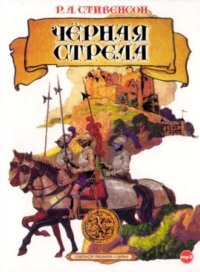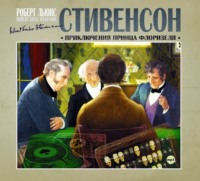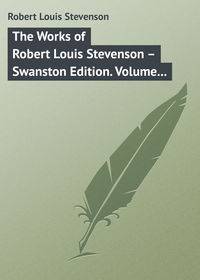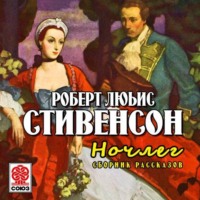 полная версия
полная версияThe Waif Woman
“Wife,” says he at last, “you will not forget these things belong to Asdis?”
At that she barked upon him like a dog.
“Am I a thief?” she cried. “The brat shall have them in her turn when she grows up. Would you have me give her them now to turn her minx’s head with?”
So the weak man went his way out of the house in sorrow and fell to his affairs. Those that wrought with him that day observed that now he would labour and toil like a man furious, and now would sit and stare like one stupid; for in truth he judged the business would end ill.
For a while there was no more done and no more said. Aud cherished her treasures by herself, and none was the wiser except Finnward. Only the cloak she sometimes wore, for that was hers by the will of the dead wife; but the others she let lie, because she knew she had them foully, and she feared Finnward somewhat and Thorgunna much.
At last husband and wife were bound to bed one night, and he was the first stripped and got in. “What sheets are these?” he screamed, as his legs touched them, for these were smooth as water, but the sheets of Iceland were like sacking.
“Clean sheets, I suppose,” says Aud, but her hand quavered as she wound her hair.
“Woman!” cried Finnward, “these are the bed-sheets of Thorgunna – these are the sheets she died in! do not lie to me!”
At that Aud turned and looked at him. “Well?” says she, “they have been washed.”
Finnward lay down again in the bed between Thorgunna’s sheets, and groaned; never a word more he said, for now he knew he was a coward and a man dishonoured. Presently his wife came beside him, and they lay still, but neither slept.
It might be twelve in the night when Aud felt Finnward shudder so strong that the bed shook.
“What ails you?” said she.
“I know not,” he said. “It is a chill like the chill of death. My soul is sick with it.” His voice fell low. “It was so Thorgunna sickened,” said he. And he arose and walked in the hall in the dark till it came morning.
Early in the morning he went forth to the sea-fishing with four lads. Aud was troubled at heart and watched him from the door, and even as he went down the beach she saw him shaken with Thorgunna’s shudder. It was a rough day, the sea was wild, the boat laboured exceedingly, and it may be that Finnward’s mind was troubled with his sickness. Certain it is that they struck, and their boat was burst, upon a skerry under Snowfellness. The four lads were spilled into the sea, and the sea broke and buried them, but Finnward was cast upon the skerry, and clambered up, and sat there all day long: God knows his thoughts. The sun was half-way down, when a shepherd went by on the cliffs about his business, and spied a man in the midst of the breach of the loud seas, upon a pinnacle of reef. He hailed him, and the man turned and hailed again. There was in that cove so great a clashing of the seas and so shrill a cry of sea-fowl that the herd might hear the voice and nor the words. But the name Thorgunna came to him, and he saw the face of Finnward Keelfarer like the face of an old man. Lively ran the herd to Finnward’s house; and when his tale was told there, Eyolf the boy was lively to out a boat and hasten to his father’s aid. By the strength of hands they drove the keel against the seas, and with skill and courage Eyolf won upon the skerry and climbed up, There sat his father dead; and this was the first vengeance of Thorgunna against broken faith.
It was a sore job to get the corpse on board, and a sorer yet to bring it home before the rolling seas. But the lad Eyolf was a lad of promise, and the lads that pulled for him were sturdy men. So the break-faith’s body was got home, and waked, and buried on the hill. Aud was a good widow and wept much, for she liked Finnward well enough. Yet a bird sang in her ears that now she might marry a young man. Little fear that she might have her choice of them, she thought, with all Thorgunna’s fine things; and her heart was cheered.
Now, when the corpse was laid in the hill, Asdis came where Aud sat solitary in hall, and stood by her awhile without speech.
“Well, child?” says Aud; and again “Well?” and then “Keep us holy, if you have anything to say, out with it!”
So the maid came so much nearer, “Mother,” says she, “I wish you would not wear these things that were Thorgunna’s.”
“Aha,” cries Aud. “This is what it is? You begin early, brat! And who has been poisoning your mind? Your fool of a father, I suppose.” And then she stopped and went all scarlet. “Who told you they were yours?” she asked again, taking it all the higher for her stumble. “When you are grown, then you shall have your share and not a day before. These things are not for babies.”
The child looked at her and was amazed. “I do not wish them,” she said. “I wish they might be burned.”
“Upon my word, what next?” cried Aud. “And why should they be burned?”
“I know my father tried to burn these things,” said Asdis, “and he named Thorgunna’s name upon the skerry ere he died. And, O mother, I doubt they have brought ill luck.”
But the more Aud was terrified, the more she would make light of it.
Then the girl put her hand upon her mother’s. “I fear they are ill come by,” said she.
The blood sprang in Aud’s face. “And who made you a judge upon your mother that bore you?” cried she.
“Kinswoman,” said Asdis, looking down, “I saw you with the brooch.”
“What do you mean? When? Where did you see me?” cried the mother.
“Here in the hall,” said Asdis, looking on the floor, “the night you stole it.”
At that Aud let out a cry. Then she heaved up her hand to strike the child. “You little spy!” she cried. Then she covered her face, and wept, and rocked herself. “What can you know?” she cried. “How can you understand, that are a baby, not so long weaned? He could – your father could, the dear good man, dead and gone! He could understand and pity, he was good to me. Now he has left me alone with heartless children! Asdis,” she cried, “have you no nature in your blood? You do not know what I have done and suffered for them. I have done – oh, and I could have done anything! And there is your father dead. And after all, you ask me not to use them? No woman in Iceland has the like. And you wish me to destroy them? Not if the dead should rise!” she cried. “No, no,” and she stopped her ears, “not if the dead should rise, and let that end it!”
So she ran into her bed-place, and clapped at the door, and left the child amazed.
But for all Aud spoke with so much passion, it was noticed that for long she left the things unused. Only she would be locked somewhile daily in her bed-place, where she pored on them and secretly wore them for her pleasure.
Now winter was at hand; the days grew short and the nights long; and under the golden face of morning the isle would stand silver with frost. Word came from Holyfell to Frodis Water of a company of young men upon a journey; that night they supped at Holyfell, the next it would be at Frodis Water; and Alf of the Fells was there, and Thongbrand Ketilson, and Hall the Fair. Aud went early to her bed-place, and there she pored upon these fineries till her heart was melted with self-love. There was a kirtle of a mingled colour, and the blue shot into the green, and the green lightened from the blue, as the colours play in the ocean between deeps and shallows: she thought she could endure to live no longer and not wear it. There was a bracelet of an ell long, wrought like a serpent and with fiery jewels for the eyes; she saw it shine on her white arm and her head grew dizzy with desire. “Ah!” she thought, “never were fine lendings better met with a fair wearer.” And she closed her eyelids, and she thought she saw herself among the company and the men’s eyes go after her admiring. With that she considered that she must soon marry one of them and wondered which; and she thought Alf was perhaps the best, or Hall the Fair, but was not certain, and then she remembered Finnward Keelfarer in his cairn upon the hill, and was concerned. “Well, he was a good husband to me,” she thought, “and I was a good wife to him. But that is an old song now.” So she turned again to handling the stuffs and jewels. At last she got to bed in the smooth sheets, and lay, and fancied how she would look, and admired herself, and saw others admire her, and told herself stories, till her heart grew warm and she chuckled to herself between the sheets. So she shook awhile with laughter; and then the mirth abated but not the shaking; and a grue took hold upon her flesh, and the cold of the grave upon her belly, and the terror of death upon her soul. With that a voice was in her ear: “It was so Thorgunna sickened.” Thrice in the night the chill and the terror took her, and thrice it passed away; and when she rose on the morrow, death had breathed upon her countenance.
She saw the house folk and her children gaze upon her; well she knew why! She knew her day was come, and the last of her days, and her last hour was at her back; and it was so in her soul that she scarce minded. All was lost, all was past mending, she would carry on until she fell. So she went as usual, and hurried the feast for the young men, and railed upon her house folk, but her feet stumbled, and her voice was strange in her own ears, and the eyes of the folk fled before her. At times, too, the chill took her and the fear along with it; and she must sit down, and the teeth beat together in her head, and the stool tottered on the floor. At these times, she thought she was passing, and the voice of Thorgunna sounded in her ear: “The things are for no use but to be shown,” it said. “Aud, Aud, have you shown them once? No, not once!”
And at the sting of the thought her courage and strength would revive, and she would rise again and move about her business.
Now the hour drew near, and Aud went to her bed-place, and did on the bravest of her finery, and came forth to greet her guests. Was never woman in Iceland robed as she was. The words of greeting were yet between her lips, when the shuddering fell upon her strong as labour, and a horror as deep as hell. Her face was changed amidst her finery, and the faces of her guests were changed as they beheld her: fear puckered their brows, fear drew back their feet; and she took her doom from the looks of them, and fled to her bed-place. There she flung herself on the wife’s coverlet, and turned her face against the wall.
That was the end of all the words of Aud; and in the small hours on the clock her spirit wended. Asdis had come to and fro, seeing if she might help, where was no help possible of man or woman. It was light in the bed-place when the maid returned, for a taper stood upon a chest. There lay Aud in her fine clothes, and there by her side on the bed the big dead wife Thorgunna squatted on her hams. No sound was heard, but it seemed by the movement of her mouth as if Thorgunna sang, and she waved her arms as if to singing.
“God be good to us!” cried Asdis, “she is dead.”
“Dead,” said the dead wife.
“Is the weird passed?” cried Asdis.
“When the sin is done the weird is dreed,” said Thorgunna, and with that she was not.
But the next day Eyolf and Asdis caused build a fire on the shore betwixt tide-marks. There they burned the bed-clothes, and the clothes, and the jewels, and the very boards of the waif woman’s chests; and when the tide returned it washed away their ashes. So the weird of Thorgunna was lifted from the house on Frodis Water.









